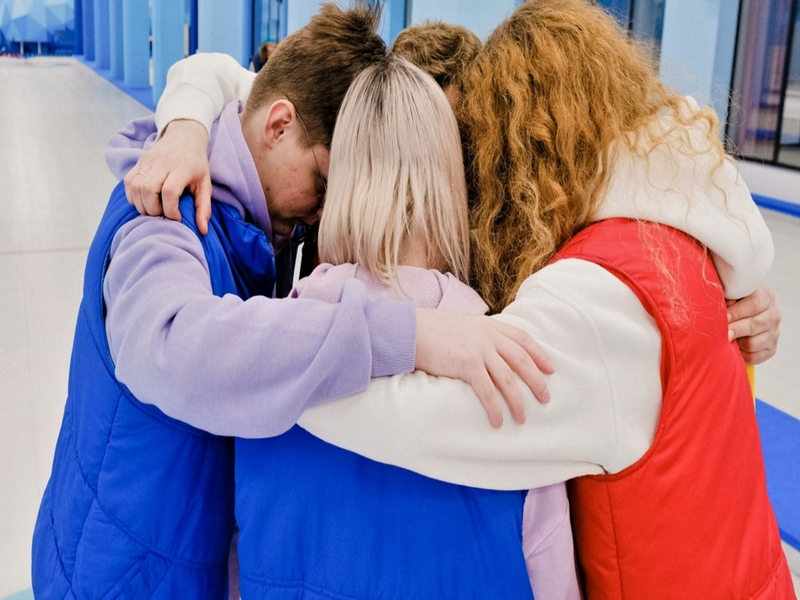Care home staff say psychological distress from Covid pandemic was like facing 'war'
Care home workers suffered psychological distress as a result of the Covid-19 pandemic, but bravely banded together to display, what academics call military-like ‘camaraderie’.

Academics at University of Highlands and Islands (UHI) interviewed care home workers about their experiences as Covid-19 spread through Scotland’s care homes in the pandemic.
The study concluded that there is “a moral obligation to provide psychological support to care home staff” to avoid distress and psychological health problems, as staff try to recover from the pandemic's impact.
UHI and Northumbria University researchers spent four months surveying 52 staff members from care provider Balhousie Care Group’s 26 care homes between January and May 2021.
‘It’s a war in a lot of ways’ says care home worker
Staff spoke of keeping each other’s spirits up and turning to each other for emotional support.
“It’s a war in a lot of ways,” said one care home worker.
“We have to stick together then keep moving forward.”
Academics drew comparisons between their findings in the care homes and stories of the camaraderie that happens in the military during wartime.
Dr Michelle Beattie, senior lecturer at the University of the Highlands and Islands and Research Lead, said: “They felt like it was a war against the pandemic. There was a sense of ‘we need to pull together and face this together’.
"You read about that sense of camaraderie in the military and people deploying to war but not that much in healthcare. None of us had seen that before in any previous work."
Dr Beattie said the researchers themselves were “blown away” by the personal sacrifices made by staff, which included moving out of their own homes to protect care home residents.
One worker said: “I lost seven months with my daughter so I could keep me safe, them safe and my residents safe.”
Dr Beattie said: “Not seeing your children because you want to protect your residents from COVID. To me that’s a whole other level of self-sacrifice.”
Care worker: Sneaking off ‘to have a wee cry’
One care home worker told researchers: “I had said to myself from Day One, I would never not go and care for my residents. That’s just not me. I wouldn’t put myself before them."
Care home managers share the extra stress of supporting their teams in an ongoing crisis, while not revealing their own struggles.
“I found myself sneaking off to the toilet to have a wee cry, just to get the emotions out… I never took work home with me, I just left it there,” one said.
The care home workers gave examples of the unreasonable and unrealistic demands on them from care inspectors.
“We’ve not had COVID and here’s the inspector picking me up because I’ve got version two of a poster instead of version three. It’s just ridiculous,” said one worker.
The study recommended care home inspectors be supportive and "avoid a ‘tick box’ mentality". The study also recommended ‘safe spaces’ to allow workers to reflect on their pandemic experiences.
'Emotional and raw'
Balhousie Care Group in North East Scotland, has 26 care homes caring for over 900 residents. Since the start of the pandemic, the group introduced free counselling and advice.
The group's care homes also set up private chat groups for staff and private Facebook pages for relatives to aid communication among staff, care homes and relatives.
One staff member told researchers: “I know that if there’s anything anybody has a problem with or if I had a problem, then we can open up in our group chat.”
“The commonly used word to describe a hero is ‘to show courage’” said Lindsay Dingwall, a co-author of the study and clinical care quality manager at Balhousie Care Group.
“So we can safely say that since March 2020 care home staff have earned that description. As emotional and raw as this study was for our respondents and the researchers, it was hugely important to be part of it.
“For the sake of our employees and residents, and in honour of everyone who has lost a life in the last two years, we wanted to help document not only what care workers have gone through, but also their dedication to their jobs.”
Latest News
 29-Jul-24
Dementia Bus gives carehome.co.uk staff insight into life with dementia
29-Jul-24
Dementia Bus gives carehome.co.uk staff insight into life with dementia
 01-Mar-24
Find out the top care homes in 2024
01-Mar-24
Find out the top care homes in 2024
 21-Mar-23
UK's top care homes in 2023 revealed
21-Mar-23
UK's top care homes in 2023 revealed
 03-Jan-23
carehome.co.uk launches free care helpline
03-Jan-23
carehome.co.uk launches free care helpline
 13-Dec-22
5 mins with Emily Whitehurst, chief operating officer for Constantia Healthcare
13-Dec-22
5 mins with Emily Whitehurst, chief operating officer for Constantia Healthcare